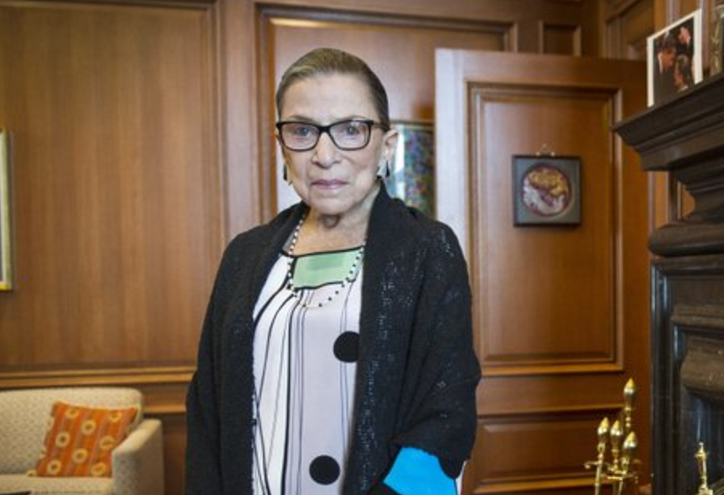
Supreme Court Justice Ruth Bader Ginsburg dies at 87
Supreme Court Justice Ruth Bader Ginsburg, a towering women’s rights champion who became the court’s second female justice, died Friday at her home in Washington. She was 87.
Ginsburg died of complications from metastatic pancreatic cancer, the court said.
Her death just over six weeks before Election Day is likely to set off a heated battle over whether President Donald Trump should nominate, and the Republican-led Senate should confirm, her replacement, or if the seat should remain vacant until the outcome of his race against Democrat Joe Biden is known. Majority Leader Mitch McConnell said late Friday that the Senate will vote on Trump’s pick to replace Ginsburg, even though it’s an election year.
Trump called Ginsburg an “amazing woman” and did not mention filling her vacant Supreme Court seat when he spoke to reporters following a rally in Bemidji, Minnesota.
Biden said the winner of the November election should choose Ginsburg’s replacement. “There is no doubt — let me be clear — that the voters should pick the president and the president should pick the justice for the Senate to consider,” Biden told reporters after returning to his hometown of Wilmington, Delaware, from campaign stops in Minnesota.
Chief Justice John Roberts mourned Ginsburg’s passing. “Our Nation has lost a jurist of historic stature. We at the Supreme Court have lost a cherished colleague. Today we mourn, but with confidence that future generations will remember Ruth Bader Ginsburg as we knew her — a tireless and resolute champion of justice,” Roberts said in a statement.
Ginsburg announced in July that she was undergoing chemotherapy treatment for lesions on her liver, the latest of her several battles with cancer.
Ginsburg spent her final years on the bench as the unquestioned leader of the court’s liberal wing and became something of a rock star to her admirer’s. Young women especially seemed to embrace the court’s Jewish grandmother, affectionately calling her the Notorious RBG, for her defense of the rights of women and minorities, and the strength and resilience she displayed in the face of personal loss and health crises.
Following her death, Clinton said, “Her 27 years on the Court exceeded even my highest expectations when I appointed her.”






